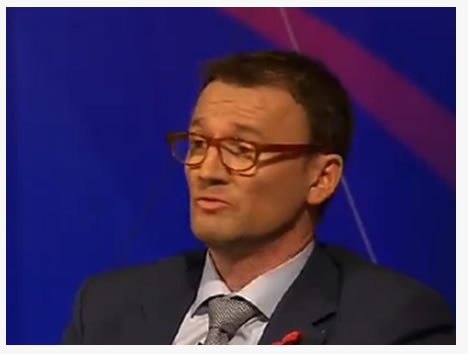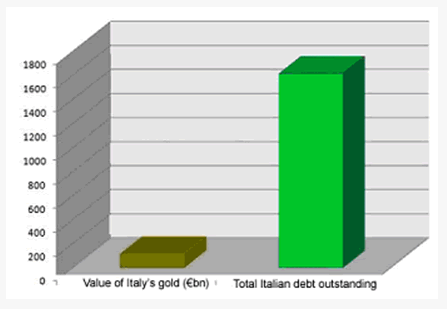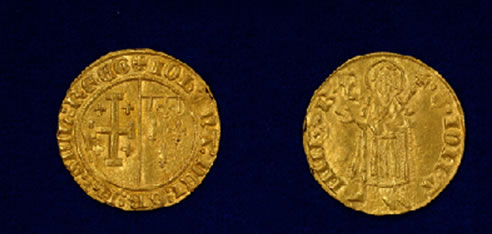Shame of the Euro: How the European Project Lost Touch With Democracy and Its Humanitarian Roots
Politics / Euro-Zone Nov 17, 2011 - 11:45 AM GMTBy: Submissions
 Will Bancroft writes: The European project started with noble aims and general popular endorsement. We are not going to criticise the ideas for starting the ball rolling at The Treaty of Rome in 1957. The European continent had a bloody history of war, revolution, and conflict between different ethnic and cultural groups. A Second World War within a few decades of the first brought peoples and politicians to a highly developed state of empathy and cooperation. Fertile ground to lay the foundations of projects economic and political one might feel, and for some healthy collaboration for human advancement.
Will Bancroft writes: The European project started with noble aims and general popular endorsement. We are not going to criticise the ideas for starting the ball rolling at The Treaty of Rome in 1957. The European continent had a bloody history of war, revolution, and conflict between different ethnic and cultural groups. A Second World War within a few decades of the first brought peoples and politicians to a highly developed state of empathy and cooperation. Fertile ground to lay the foundations of projects economic and political one might feel, and for some healthy collaboration for human advancement.
Europe had also witnessed a previously motley collection of states across the Atlantic become the world’s most impressive economic empire, who had arrived late and made the decisive interventions in the Second World War. The examples and learning from the USA were viewed with natural envy from the Eastern side of the Atlantic, and thoughts were building of a move towards a similar union of states.
However, since the Treaty of Lisbon in 2009 and the eventual inception of the Euro, politicians and the public have started to de-couple in their walk towards a more integrated European future. The European project has entered a new and troubled phase where it had far less of a democratic mandate but the politicians at the helm where still bent on further integration and cooperation for various ideological, political and other reasons. The sixth Parliamentary election within Europe in June 2004 saw turnout of only 45%, whilst the following Constitutional Treaty later that year was blocked by referendums in France and the Netherlands. Since this time anti-European political movements have gained some significant traction, such as a previously unheard of Party, The True Finns, who won 19.1% of the national vote to become the 3rd largest Party in the Finnish Parliament in 2011. In the UK David Cameron is able to maintain his cool stance towards Europe as mountains of continental debt shudder, and in last night’s Lord Mayor’s Banquet Speech Cameron was at his most firm concerning the EU. The previously maligned UKIP, and their figurehead, Nigel Farage, are gaining in credibility and legitimacy with every lurch of the European debt crisis. In fact, we find ourselves sharing rather a lot of our economic world view with Mr Farage, a previous financial market participant who could teach the European political elite a thing or two about the realities of financial markets and economics. Journalist, James Delingole’s recent piece, ‘Farage has only got one ball’, is a representative example of the rise of Farage in thinking circles. UKIP was recently found to hold more support than the Lib Dems by a 13th November poll by YouGov.
The goals of the European currency union, the UK was lucky and/or wise to not participate in, were also noble, but by this stage in the EU’s development politicians were not only losing touch with their electorates but also with some of the governing laws of economic reality. The EU was becoming a self-perpetuating and self-justifying project of political empire building. Trying to implement a monetary union with component parts as different as Germany and Greece was always going to be a challenge and a number of notable economists and Politicians, such as Norman Lamont, at the time highlighted the potential euro’s flaws and illuminated a certain attendant political hubris. As Bill Bonner comments:
When the going was good, the Greeks were able to borrow a lot of money at German interest rates. Anybody who bothered to look at the history of Greek debt would have known that it was a bad bet for the lenders. The Greeks have been in default during about 1 out of every 2 years…ever since they gained independence in 1828. The Greeks are good at gaming the system, having a good time…and living well. They stay up late…but they retire early! …who can blame them for taking the bankers’ money? And who can blame them for not wanting to pay it back? The bankers should have known better than to lend to Greeks!
The fact is that mechanisms like uniform interest rates were always going to cause imbalances between countries that had such differences in productivity, operated different trade balances, and had such different economic characteristics. The difference in productivity between your average Greek and German is rather more marked than the difference between your average Floridian and Chicagoan. We understand German concerns about providing blank cheques to the European periphery, but we are also understanding of Greeks not wanting to submit future generations to becoming debt slaves to foreign creditors. The value judgements should not be enforced on these such differing peoples, but on the economic creation that caused this. Imbalances and debt have grown; the euro was flawed and the markets have worked it out. As Hugh Hendry nicely puts it:
‘Ordinary people are being used as collateral in order to persevere with a political model that has poor groundings in economics’.

Anyway, here we are, and this last fortnight has brought out some rather interesting commentary that naturally caught our attention due to its golden shine. Debtor nations whose debt has become rather less secure and valuable, have been urged to look inwards to their most secure and ultimately liquid national assets; their gold reserves. After a few decades of financial engineering and credit creation, it feels more than ironic that gold is been mentioned by notable commentators as a solution to the problem. We say ‘plus ça change, plus c'est la même chose’!
Once again gold’s role as an incorruptible store of value is being recognized and debtor nation’s gold reserves are being eyed as ways to pay off creditors. Unfortunately nations such as Italy do not have enough gold to pay off their debts, as is nicely illustrated by the chart below from The Right Side.

As Bengt Saelensminde continues for The Right Side, Greece also does not have enough gold to pay off their debt pile. If we were Italy or Greece we wouldn’t even think of selling the family silver to pay of these debts. Members of the G20 have even been pressuring Germany to sell its gold, which was met by Germany’s vice-chancellor and economy minister Philipp Roesler rebutting that "German gold reserves must remain untouchable". We don’t blame the Germans for wanting to hang onto their gold either. Let’s turn again to Bengt Saelensminde again to put this discussion in its rightful context:
‘Gold has been shunned over the last thirty years or so in favour paper backed by government promises. Those that argued that this could only end up in one awful mess were side-lined and vilified. And to a degree they still are today. There’s no doubt that fiat currencies have had an incredibly good 30-year run. But there’s a big problem. The Western world is ageing. Post World War II baby-boomers are starting to drawdown on their promissory notes. They want goods and services in return for their paper. The world’s financial system is struggling to deliver’.
It does indeed seem that few want to hold government promises to pay, and that gold is being prized. What this really makes us think is that a European currency to reduce trade barriers and encourage growth and development was a good idea, but the wrong solution was pursued. The reason it was so wrong was its half-***** fiat currency status.

We ask the reader to cast their mind back to another currency, the Florentine florin. This currency was the first European gold coin to achieve the status of an international currency after the disappearance of European gold coinage in the eighth century. During the florins’ use between 1252 and 1533 the values of other countries' money continually oscillated, reinforcing the florin's utility as a common measure of value for foreign exchange transactions. Could the florin’s success have been replicated with a gold backed euro? Or even bi-metallic euro? We believe so, although coinage plays less of a monetary role these days, silver coins working in partnerships with gold backed paper and digital money could have offered a solution. Governments could have messed around with their own monies on the side during such a metal backed euro, but like during the florin era Thier’s Law (as termed by Professor Peter Bernholz) would have effected that the more stable and sound money would be chosen by market participants as preferable.
Money is the most important commodity in our lives, and control of it by the authorities is abhorrent to Austrian economists. We put ourselves firmly in this camp. Control of interest rates, the supply and demand for money, sits in the palm of central bankers in today’s fiat paradigm. The Austrians find that such manipulation will disrupt the highly complex and dynamic market process by which interest rates are set, invariably producing problematic results. Inflation is a manifestation of such perverse results, and brought about by poor policy actions. Beyond inflation, the creation of bubbles and their attendant busts owes much of their causality to corrupting the money supply. If you have read this far and not thought of Bernanke in the cockpit of his helicopter; where have you been?
The power to set interest rates, and thus prices, is the most powerful and potentially distorting effect on markets today. Central banks act as a cabal, the most powerful that has ever been seen in the markets. For reasons that are mostly to do with the preservation of power, politicians and central bankers favor an imposed level of inflation (moderate we are always told, but then we down trust CPI or RPI and prefer John Williams’s ‘Shadow Government Statistics’). Setting interest rates below what the market would settle to if the market’s democratic mass particiaption was truly allowed to act encourages the misallocation of capital. With the helping hand of credit, stimulus, and pump priming, this dynamic can be sustained for a while, but eventually real savings and wealth are exhausted and debt burdens clog up the wheels of capitalism like rust in a motor. When this happens a severe rebalancing must occur. Are we facing such a rebalancing now?
Europe and the Eurozone issue now are some of the best examples we can see of boils that need lacing by the market because of intervention in money and its supply and demand. As Ben Davies of Hinde Capital writes:
‘The failing of the banking system is the product of meddling in the true or real rate of interest which has distorted all pricing mechanisms in the production of both credit, resource availability, manufactured goods and services. This has been a global phenomenon.’
Sadly, as we mentioned earlier, the political, financial, and capitalist elite favor a fiat system where they can pull the monetary levers to further their own ends. Lucky for the few. You might call these few the other ‘1%’ that the Occupy movement are banging on about now. We have some sympathy for their chatter, and although their anger is understandable, their energy is misdirected. It is not too much capitalism that is the problem, but too little of it being allowed to occur at the heart of our current financial world.
The Euro has proved a disaster and we feel sadness for the peoples of Europe who have been locked into its monetary straight jacket. Democracy and humanity has suffered as a result, nation states are creaking, and civil unrest may just be beginning. These last few years, when national electorates have been given a vote or referendum and then Brussels has been slapped away, the naughty sovereign is told to ‘vote again and get it right’. Greece should have had a referendum these last few weeks and was denied. We say why? What the current turmoil really shows is how far the European project has come off its rails, that when originally laid were intending to take its peoples to a more prosperous, cooperative and safer place. As Tony Barber opined in last week’s FT, ‘the deeper Europe’s debt crisis becomes, the more European policy makers are clutching at solutions that substitute technocratic government for democracy’. This is indeed where we are now, and democracy should not be deemed an old fashioned luxury.
Gold and bi-metallic monetary systems were derided as ‘barbarous relics’ and constraining of our economic development and growth. We would urge that although gold is indeed incorruptible and brings financial discipline, that growth under a metallic money system would have been slower at times, but steadier and more solid that artificial fizzes of growth built on poor foundations of misallocated capital and debt. Burton Malkiel didn’t mean his ‘castles in the sky’ concept in quite this way, but we would humbly apply it to various bubble fazes of contemporary capitalism. In contrast the Austrian school looks to gold and silver, and urges that gold is more than just money. It is freedom, liberty, equality, and certainty. These attributions sound a bit like some of the ideals of the founding fathers of America, and the revolutionaries in France post the Ancien Regime.
We would like to leave you with a quote that was uttered by another observer musing the financial status quo:
"You should not assume that because you do not have a background in economics or law that these issues are too complex for you – they’re not complex at all. It’s simple, it’s about power and democracy and you understand that just as well as I do." Professor Simon Johnson
Regards and good investing,
Will Bancroft
For The Real Asset Company.
Aside from being Co-Founder and COO, Will regularly contributes to The Real Asset Company’s Research Desk. His passion for politics, philosophy and economics led him to develop a keen interest in Austrian economics, gold and silver. Will holds a BSc Econ Politics from Cardiff University.
© 2011 Copyright Will Bancroft - All Rights Reserved
Disclaimer: The above is a matter of opinion provided for general information purposes only and is not intended as investment advice. Information and analysis above are derived from sources and utilising methods believed to be reliable, but we cannot accept responsibility for any losses you may incur as a result of this analysis. Individuals should consult with their personal financial advisors.
© 2005-2022 http://www.MarketOracle.co.uk - The Market Oracle is a FREE Daily Financial Markets Analysis & Forecasting online publication.



